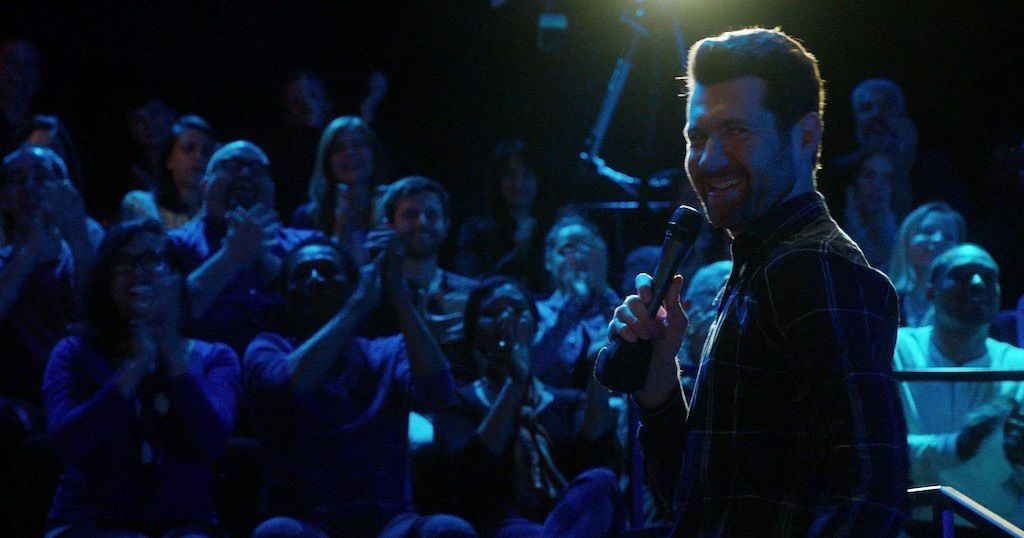You are using an out of date browser. It may not display this or other websites correctly.
You should upgrade or use an alternative browser.
You should upgrade or use an alternative browser.
The feel of the 2010's
- Thread starter linebaugh
- Start date
-
- Tags
- 2008-2016 an adult chimpanzee will rip your feet off combat footage contemporary sexual abuse craner's bounty cringe dialectics decadefeel experts in concrete hauntology historical sexual abuse i didnt do the abuse tags noncey bookends not getting lost the long arm of silvio the opposite of nostalgia the romance of blades the seductive essence of new labour the twin ghosts of savile and epstein
dilbert1
Well-known member
And thus was born, at the threshold of this era and our own, “Cum Town”Comedians seeking applause and approval rather than laughs seems to be have been a feature of the 2010s. "Clapter."
Mr. Tea
Let's Talk About Ceps
Ugh. This is the syndrome of Frankie Boyle and Ricky Gervais, isn't it? And, for a while, Russell Brand, I guess. Goes to show that if you have an audience of middle-class left-liberals, you can whip them up into a self-righteous frenzy by taking risk-free jabs at the easiest possible targets - Tories! Bankers! Tory bankers! - and they'll give you free reign to revert to being a playground bully and make 'daring' jokes about rape and "spastics."Comedians seeking applause and approval rather than laughs seems to be have been a feature of the 2010s. "Clapter."
I think openly reactionary working-class comics like Bernard Manning and Jim Davidson are less bad, if only because they're not obnoxious hypocrites.
Ugh. This is the syndrome of Frankie Boyle and Ricky Gervais, isn't it? And, for a while, Russell Brand, I guess. Goes to show that if you have an audience of middle-class left-liberals, you can whip them up into a self-righteous frenzy by taking risk-free jabs at the easiest possible targets - Tories! Bankers! Tory bankers! - and they'll give you free reign to revert to being a playground bully and make 'daring' jokes about rape and "spastics."
I think openly reactionary working-class comics like Bernard Manning and Jim Davidson are less bad, if only because they're not obnoxious hypocrites.
This is an open goal, but I'm going to say openly racist comedians are worse than annoying liberal comedians.
When news broke last week that FX’s critically acclaimed comedy Atlanta would finally be returning for its second season, I marked the occasion by rereading one of my favorite profiles of Donald Glover, which was published back in August 2016. Speaking to Vulture about the show’s creative priorities, Glover said the following:
“The No. 1 thing we kept coming back to is that it needs to be funny first and foremost. I never wanted this shit to be important. I never wanted this show to be about diversity; all that shit is wack to me. There’s a lot of clapter going on. A lot of n−−−−− be like …” — Glover started clapping exaggeratedly — “‘So true, yes, so, so true.’ But what you did isn’t funny; they’re just clapping and laughing to be on the right side of history.”

 www.vulture.com
www.vulture.com
“The No. 1 thing we kept coming back to is that it needs to be funny first and foremost. I never wanted this shit to be important. I never wanted this show to be about diversity; all that shit is wack to me. There’s a lot of clapter going on. A lot of n−−−−− be like …” — Glover started clapping exaggeratedly — “‘So true, yes, so, so true.’ But what you did isn’t funny; they’re just clapping and laughing to be on the right side of history.”

The Rise of “Clapter” Comedy
The phenomenon coined by Seth Meyers is everywhere in comedy. Is it hurting the form?
This is an open goal, but I'm going to say openly racist comedians are worse than annoying liberal comedians.
This is me indulging in clapter, although I thought it was funny too.
Mr. Tea
Let's Talk About Ceps
But it goes a bit beyond being "annoying", though, doesn't it? I'm talking about e.g. Manning's racism being beyond the pale, but Boyle can make jokes about Katie Price being raped by her own mentally disabled son, or repeatedly take the piss out of a swimmer for how she looks until she quits Twitter because of all the abuse she's getting, but he also hates David Cameron, so he's one of the good guys really, even if he's a bit rough around the edges. I mean, come the fuck on. That's nonsense, isn't it?I do know what you mean though. If someone's genuinely bad then you just write them off and don't really think about it, whereas if someone's annoying it really sticks for some reason.
Mr. Tea
Let's Talk About Ceps
Well you got some clapter from sufi, who AFAICT is still convinced I'm a fucking neo-Nazi or something.This is me indulging in clapter, although I thought it was funny too.
Mr. Tea
Let's Talk About Ceps
When news broke last week that FX’s critically acclaimed comedy Atlanta would finally be returning for its second season, I marked the occasion by rereading one of my favorite profiles of Donald Glover, which was published back in August 2016. Speaking to Vulture about the show’s creative priorities, Glover said the following:
“The No. 1 thing we kept coming back to is that it needs to be funny first and foremost. I never wanted this shit to be important. I never wanted this show to be about diversity; all that shit is wack to me. There’s a lot of clapter going on. A lot of n−−−−− be like …” — Glover started clapping exaggeratedly — “‘So true, yes, so, so true.’ But what you did isn’t funny; they’re just clapping and laughing to be on the right side of history.”

The Rise of “Clapter” Comedy
The phenomenon coined by Seth Meyers is everywhere in comedy. Is it hurting the form?www.vulture.com
Along the same lines is the British comedian Stewart Lee, who once sarcastically mocked a response of “clapter” by saying: “Hear that applause? That’s what I like. I’m not interested in laughs. I prefer applause. […] What I’m aiming for is a temporary mass liberal consensus.”
I was thinking about Lee, actually, because he could very easily fall into this trap, but he avoids it at least some of the time by saying things that his audience doesn't necessarily think, or that they think but would not admit to thinking, and he's arguably at his best when he's making them feel uncomfortable, or at any rate trying to get them to look at something from a new viewpoint, rather than just basking in the applause (which is as much the audience applauding itself, I think, for having the excellent moral taste in agreeing with this particular performer, as it is applause for the performer).
shakahislop
Well-known member
reading the news on the internet every day is an important part of the feeling of the 2010s i think, and its not like its niche, it feels like its a mass practice. in terms of shaping people's perceptions of reality its an important thing. the news feels like its in people's thoughts a lot. related to that, the emotional experience of reading the news, the way that it generates an affective response. and hearing of news while out and about rather than just when you get home and turn the tele on, being on your way somewhere and hearing about some unnerving catastrophe, being at a mates house and the notification coming up on your phone. everyone got locked into these affective text machines and by the end of the decade some people had got really good at pulling their levers
shakahislop
Well-known member
something happened to language too, which obviously has always shifted and changed, but it got twisted more intensely by the way the internet interacted with writing. blazing strong words and concepts emerged more quickly and they seemed like they interacted with the machine more than they did with human reality. loads more people realized that they could invent terminology and that it might be adopted. i had a sense of needing to learn a new vocabulary and language, similar to when i started reading books that weren't john grisham when i was 14, to understand what people on the internet were talking about. but by the end of the decade that kind of vocabulary wasn't only online, people would say it in real life as well
Mr. Tea
Let's Talk About Ceps
Absolutely. And it's bad enough when you're on a laptop and you can check BBC or The Guardian - or InfoWars or The Gray Zone or whatever you consider to be a fount of unalloyed, objective Truth - any time you like, but even worse on a smartphone, when simply opening a browser immediately shoves a load of suggested news/opinions/features right in your face.reading the news on the internet every day is an important part of the feeling of the 2010s i think, and its not like its niche, it feels like its a mass practice. in terms of shaping people's perceptions of reality its an important thing. the news feels like its in people's thoughts a lot. related to that, the emotional experience of reading the news, the way that it generates an affective response. and hearing of news while out and about rather than just when you get home and turn the tele on, being on your way somewhere and hearing about some unnerving catastrophe, being at a mates house and the notification coming up on your phone. everyone got locked into these affective text machines and by the end of the decade some people had got really good at pulling their levers
william_kent
Well-known member
Open-source intelligence (OSINT) exploded during the 2010s. Anyone with an internet connection was able to become a sleuth from their home and we ended up with blogs, social media accounts, podcasts and whatever else on all sorts of conspiracies and 'true crime'.
I'm so glad i dated my psycho ex pre 2010
i'd be fucked otherwise
linebaugh
Well-known member
Donald glover weirds me out. Im sure he only said this to cover his tracksWhen news broke last week that FX’s critically acclaimed comedy Atlanta would finally be returning for its second season, I marked the occasion by rereading one of my favorite profiles of Donald Glover, which was published back in August 2016. Speaking to Vulture about the show’s creative priorities, Glover said the following:
“The No. 1 thing we kept coming back to is that it needs to be funny first and foremost. I never wanted this shit to be important. I never wanted this show to be about diversity; all that shit is wack to me. There’s a lot of clapter going on. A lot of n−−−−− be like …” — Glover started clapping exaggeratedly — “‘So true, yes, so, so true.’ But what you did isn’t funny; they’re just clapping and laughing to be on the right side of history.”

The Rise of “Clapter” Comedy
The phenomenon coined by Seth Meyers is everywhere in comedy. Is it hurting the form?www.vulture.com
luka
Well-known member
'pizza-gate'Open-source intelligence (OSINT) exploded during the 2010s. Anyone with an internet connection could become a sleuth.
pattycakes_
Can turn naughty
Qanon was 2017
